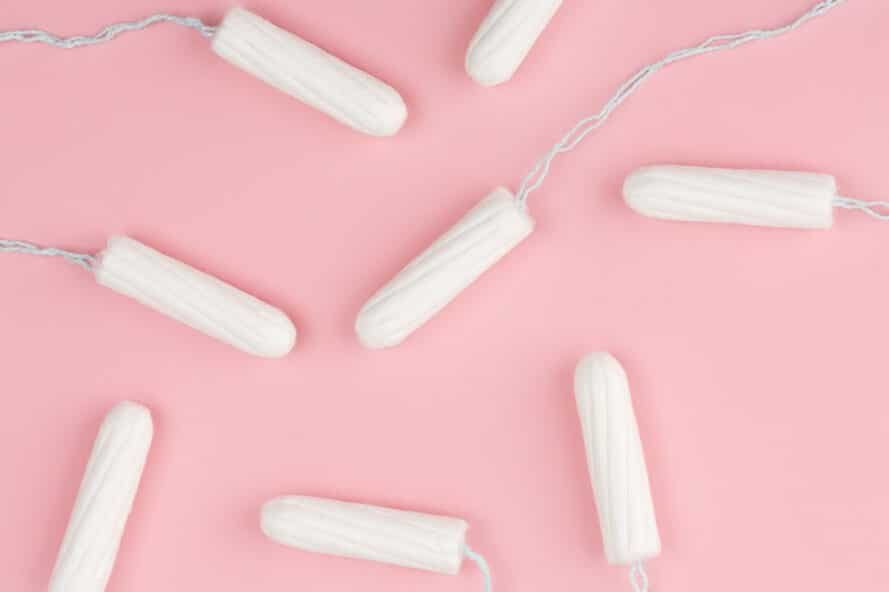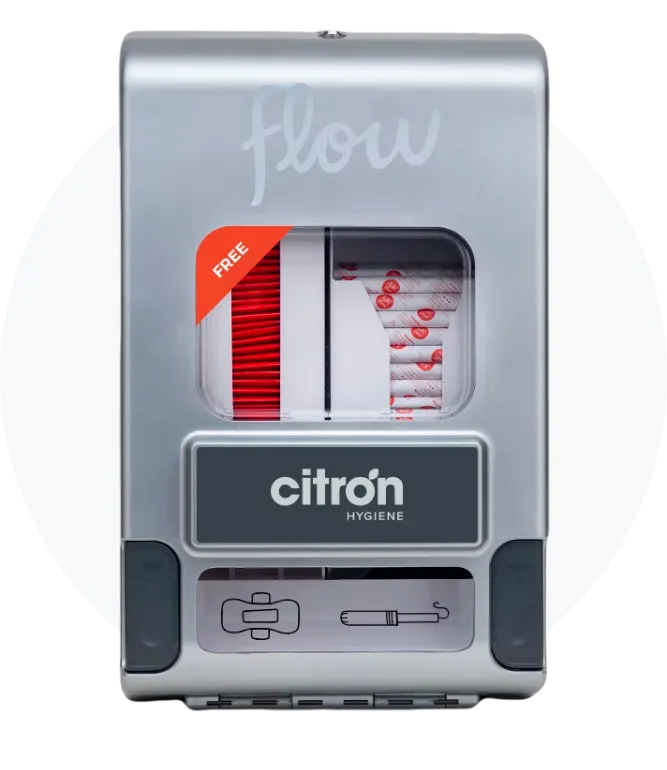More than 1.8 billion people menstruate every month worldwide, meaning the use of environmentally-friendly and responsible menstrual products is more important than ever. In this blog, we will discuss the meaning of sustainable menstruation, the challenges of period product disposal in the modern day and how we can encourage more sustainable menstrual disposal practices.
Table of Contents
What is the meaning of sustainable menstruation?
On average, a single person will bleed once a month for approximately 40 years and use about 10,000 sanitary pads or tampons – which either go into our oceans and harm marine life or end up in landfill. The sustainable menstruation movement refers to the use of more environmentally friendly period products and sustainable disposal, for the benefit of the body and earth around us.
Sustainable menstruation products
To combat this ongoing environmental challenge, it’s important to consider environmentally friendly alternatives to our everyday products to manage menstruation. For instance, reusable products such as menstrual cups, period underwear and reusable pads are all far more sustainable as they reduce waste by being used several times.
Another eco-friendly alternative is to opt for period products that avoid synthetics, chemicals, and dyes. For example, the Aunt Flow Period Product Dispenser dispenses 100% organic cotton tampons, and pads with 100% organic cotton top sheet, using minimal packaging, reducing waste by more than 25% compared to other brands.
Support period dignity in your washroom
Provide free menstrual products to your staff & customers
The harmful effects of incorrect period product disposal
Many toilets aren’t equipped with the correct period product disposal facilities, meaning that more than 50% of UK women are flushing tampons down the toilet. But did you know this can have a detrimental impact on the UK’s drains and sewers?
Not only could flushing period products down the toilet lead your business to incur costly pipe repairs, but it can also be costly to the wider environment. For instance, 6% of the average tampon is made up of plastic, which break down into microplastics over time. These leach out harmful chemicals into the sea and has huge impact on the health of sea creatures and any human that may later eat them.
Sustainable menstruation across countries
The sustainable menstruation movement isn’t just UK-wide, and it expands across many countries around the globe. However, there are a few key differences.
In India, there are concerns surrounding manual scavenging, where waste picking and segregation is done by hand, by people. Therefore, sustainable menstruation in this country also aims to tackle the issue of human rights and the dignity of manual scavengers.
In the United States, reusable and sustainable products represent only a fraction of menstruation supplies. However, the market share for reusable products is expected to grow substantially through the next decade, largely fueled by the wider acceptable and availability of the menstrual cup in Western countries.
Sustainable menstrual waste management
Whilst there are differences in the approaches to sustainable menstruation across countries, the principal remains the same, and that is to promote a more environmentally friendly approach to menstruation.
So, as a business, how can you influence your washroom users to practice sustainable disposal and use more environmentally friendly menstrual hygiene products?
Educational posters and resources
Not everyone is aware of the consequences of their actions, so signposting the effects of flushing period products down the toilet throughout your washrooms may be the prompt your users need for change. Print off our free poster and display it throughout your facilities.
Sanitary waste bins
Create a safe and inclusive space that encourages washroom users to correctly dispose of their sanitary waste products. Sanitary bins are designed to provide an accessible option to anyone who requires sanitary disposal, and should be prevalent throughout the cubicles within your washrooms to help you save on plumbing costs, washroom space and eliminate waste removal risks, all whilst protecting the planet around us.
Browse Citron Hygiene’s range of sanitary waste disposal bins.
Free-vend eco-friendly period products
63% of women are unable to afford the products they require to manage their periods. As such, more and more women and girls are using the cheapest products they can find (which are often more harmful for the environment), toilet roll or are simply unable to manage their period in a hygienic way.
Fortunately, businesses like yours can help to alleviate period poverty, whilst encouraging sustainable menstruation. The Aunt Flow Free-Vend Period Product Dispenser is the most efficient solution to provide 100% organic cotton tampons and pads for free to employees, students, and guests. Awarded the 2023 Metsa Tissue Inaugural Sustainability Award, Aunt Flow has been created as a sustainable solution to reduce the impact on landfill, whilst improving your company footfall and positive word of mouth by providing a caring away-from-home washroom experience for all.
Encourage sustainable menstruation in your business
It’s clear that sustainable menstruation is becoming a priority for businesses across the globe, and is the way forwards when it comes to managing menstruation. Now’s the time to play your part in protecting the planet. To support sustainable menstruation and Environmenstrual Week in October, learn more about the Aunt Flow Menstrual Hygiene Products Vending Machine, or get in touch to find out other ways in which Citron Hygiene can help your brand meet a new standard for away-from-home washroom experiences.

